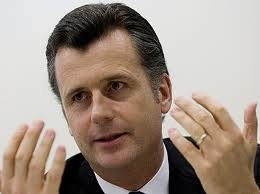Once the FDP – the (in a European sense) liberals – was the corner stone of Switzerland. Their forefathers founded Switzerland and ruled it for roughly 150 years. For the last twenty years they are in permanent (terminal?) decline. An obvious sign: A good and liberal minded friend of mine applied for membership some 9 months ago. Yet he has to receive his membership card…
Language / Sprache
Archive
- December 2025 (1)
- March 2025 (2)
- September 2024 (1)
- August 2024 (1)
- July 2024 (1)
- June 2024 (1)
- May 2024 (2)
- April 2024 (2)
- February 2024 (1)
- January 2024 (2)
- September 2023 (5)
- August 2023 (4)
- May 2023 (2)
- April 2023 (1)
- February 2023 (3)
- January 2023 (5)
- November 2022 (1)
- September 2022 (1)
- May 2022 (4)
- April 2022 (6)
- March 2022 (2)
- February 2022 (3)
- January 2022 (2)
- November 2021 (2)
- May 2021 (1)
- April 2021 (3)
- March 2021 (5)
- February 2021 (1)
- October 2020 (1)
- September 2020 (1)
- August 2020 (1)
- July 2020 (1)
- June 2020 (1)
- May 2020 (4)
- April 2020 (1)
- June 2019 (1)
- January 2019 (1)
- May 2018 (1)
- December 2017 (2)
- November 2017 (2)
- October 2017 (1)
- August 2017 (1)
- February 2017 (2)
- August 2016 (3)
- June 2016 (2)
- May 2016 (1)
- February 2016 (1)
- December 2015 (1)
- October 2015 (2)
- July 2015 (3)
- June 2015 (1)
- November 2014 (1)
- April 2014 (1)
- September 2013 (1)
- January 2013 (1)
- November 2012 (1)
- August 2012 (2)
- June 2012 (2)
- April 2012 (5)
- March 2012 (3)
- February 2012 (2)
- January 2012 (6)
- December 2011 (5)
- November 2011 (5)
- October 2011 (3)
- September 2011 (9)
- August 2011 (14)
- July 2011 (2)
- May 2011 (1)
- March 2011 (2)
- February 2011 (3)
- January 2011 (1)
Flickr





